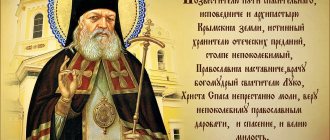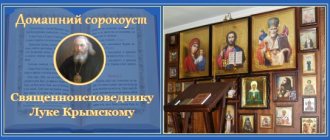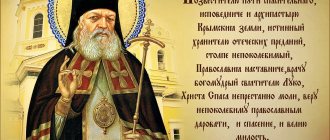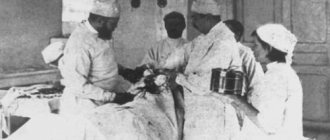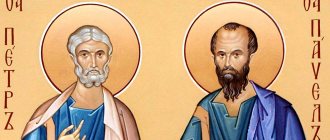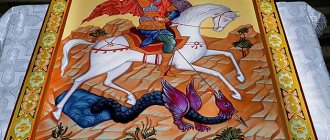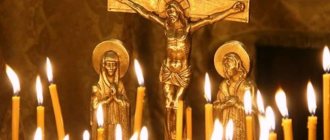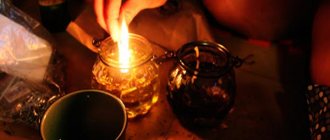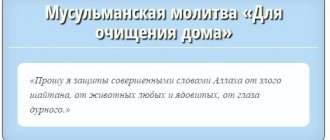Life and health are the main riches of man, bestowed by the Lord. But in life there are often situations when relatives and friends get sick. In this case, the course of the disease can be quite severe, which leads to a depressed state not only of the patient himself, but also of those close to him. In this case, prayers to St. Luke of Crimea for health will help you gain strength, patience, and perceive the situation without grumbling.
During his lifetime, this saint became famous for his ability to heal and performed real miracles when the afflicted were considered incurable, and then regained health.
Day of Remembrance:
- June 11
- March 18 - discovery of relics
Prayer
O all-blessed confessor, holy saint, our Father Luke, great servant of Christ. With tenderness, we bend the knee of our hearts, and falling to the race of your honest and multi-healing relics, like the children of our father, we pray to you with all diligence: hear us sinners and bring our prayer to the merciful and humane God, to whom you now stand in the joy of the saints and with the faces of an angel. We believe that you love us with the same love that you loved all your neighbors while you were on earth. Ask Christ our God to confirm His children in the spirit of right faith and piety: to the shepherds to give holy zeal and care for the salvation of the people entrusted to them: to observe the right of believers, to strengthen the weak and infirm in the faith, to instruct the ignorant, to reprove the contrary. Give us all a gift that is useful to everyone, and everything that is useful for temporary life and eternal salvation. Strengthening our cities, fruitful lands, deliverance from famine and destruction. Comfort for the grieving, healing for the ailing, return to the path of truth for those who have gone astray, blessing from a parent, upbringing and teaching for a child in the Passion of the Lord, help and intercession for the orphaned and needy. Grant us all your archpastoral blessing, so that if we have such a prayerful intercession, we will get rid of the wiles of the evil one and avoid all enmity and disorder, heresies and schisms. Guide us on the path leading to the villages of the righteous and pray for us to the omnipotent God, in eternal life we will be worthy with you to constantly glorify the Consubstantial and Indivisible Trinity, the Father and the Son and the Holy Spirit. Amen.
Priest Seraphim Sagedullin, rector of the Church of the Kazan Icon of the Mother of God in the village of Izvekovo, Smolensk region, talks about the prayer to Saint Luke for healing:
God has no dead - everyone is alive, so we can turn to the saints in prayer anywhere and any time we feel the need. We can turn to Hiero-Confessor Luke Voino-Yasenetsky, like all saints, in prayers compiled by the Orthodox Church. The text of prayers to Saint Luke was prepared for his glorification. That is, the akathist and the canon, and all the prayers were written literally a few years ago, at the end of the last century.
In the church year there are two important dates associated with the holy confessor Luke of Crimea: the day of his memory, repose, as we say, death - June 11, and the day of the discovery of his relics on March 18. On these two days, as well as on the days of remembrance of the Crimean, Kursk and Rostov-Yaroslavl saints, during services in the church, we turn to the saint with the whole Church. It is very good, if possible, to go to church on these days to pray with everyone.
Believers are well aware of the help of the holy great martyr and healer Panteleimon, the holy unmercenaries Cosmas and Damian. These holy doctors have been helping everyone who turns to them for many centuries. But St. Luke is very close to us in terms of the time of his life; his records and eyewitness accounts of his miracles have been preserved. That is why it is easiest for us to turn to him.
Holy Doctor - Prayer Book for the Sick
Patients of the 21st century can be called happy people. Medicine has advanced far forward, the chances of recovery have increased significantly, and a new holy healer appeared before God - Bishop Luke of Crimea, a Russian doctor, surgeon, who went through all the misfortunes of hard times. He is familiar with all diseases, he feels the suffering of every patient. A prayer to Luka Krymsky for healing is a medicine that helps you regain health.
Saint Luke
Important! Doctors often recommend surgery as an effective treatment. The risk of interventions in the body has decreased significantly due to advances in surgery, anesthesia, new technologies and equipment. Among the scientists who worked on this is St. Luke, glorified by the Church as a saint. A prayer to Luka Krymsky before surgery is offered not only by patients, but also by doctors.
When you could lose your freedom for visiting church, St. Luke prayed before operations and gave lectures to medical students, wearing a cassock and a cross.
Saints to whom we pray in illness:
- Panteliummon the Healer
- Nicholas the Wonderworker
- Matrona of Moscow
Saint Luke of Crimea began his medical career when surgery was a risky business. As the head of the surgical department of a provincial hospital, he saw the death of some patients from improperly administered anesthesia. This led him to conduct research and develop methods of safe anesthesia. Any work was accomplished in the hands of a skilled doctor: hundreds of people healed by his hands spread the glory of the surgeon far beyond the borders of the cities where he worked.
Saint Luke of Crimea
The secret of Saint Luke’s professionalism was hidden in a good education, hard work and the Orthodox faith imbibed from childhood. Valentin (the worldly name of the Saint) loved God, often prayed, read the Gospel and sought to lead others to this. When faith was opposed to science, the learned professor and practicing physician found the strength to show with action that science without God is stupidity and superstition.
For his work in medicine, Saint Luke was awarded the Stalin Prize. He spent most of the money on children left orphans after the war, and sent the rest to everyone who asked for help. The kindness and generosity of the bishop-physician was widely known. One day, an unknown woman from Tashkent sent the bishop a letter asking him to send him good embroidery threads. This did not bother the elder, burdened with worries: the request was fulfilled.
The whole life of Luka Krymsky shows his deep faith and love for people. Having earned fame in heaven, he now heals patients with a tool more faithful than a scalpel - the power of God. Will he really not hear the prayers offered even now by the weak and needy?
Post-revolutionary years
The first years after the October Revolution were literally bloody. During this difficult time, the state experienced a special need for medical workers. So, despite his commitment to faith, for some time Valentin Feliksovich was not persecuted.
From 1917 to 1923 he lived in Tashkent and worked at the Novo-Gorodskaya hospital as a surgeon. He willingly shared his experience with his students and taught at a medical school (later reorganized into the Faculty of Medicine).
During this period, the death of his beloved wife, who died of tuberculosis in 1919 and left four children without maternal care, turned into a serious test for V. Voino-Yasenetsky.
In 1920, Valentin Feliksovich accepted an offer to head the department at the State Turkestan University, recently opened in Tashkent.
How to prepare for treatment
It’s good when relatives and friends join the patient: they pray anywhere, sometimes on the go. It’s great if you can light a candle and pray in front of the icon of St. Luke.
Before the operation, it is important to confess, partake of the Holy Mysteries of Christ, receive unction, and take a blessing from the priest. It would not be superfluous to order a magpie, ask relatives to support the patient and doctors at the time of the operation with conciliar prayer.
Is it possible to pray for family and friends?
It is not only possible, but also necessary to pray for loved ones, because we are commanded to take care of each other. Prayers are dear to the Lord and the saints, offered with faith and hope that help will definitely come. So Luke of Crimea needs to pray for the sick at home and in church. At home ─ the text of the prayer suggested above. In the church during the Divine Liturgy, you can also order a prayer service to St. Luke.
Why do they pray to the saint for the recovery of children?
The saint loved all people, but was especially disposed towards children. The father of four, he also performed the sacrament of baptism on many - and sometimes in extreme conditions, and not in a warm font. And he even directed the lion’s share of the prize received to the needs of children whom the Great Patriotic War made orphans.
And today the saint continues to help people, and his icon looks at us from the walls of the offices of Orthodox doctors.
Marina Rogova
Priestly ministry
In addition to fulfilling official and family responsibilities during this period, he took an active part in church life and attended meetings of the Tashkent Brotherhood. Once, after a successful report by V. Voino-Yasenetsky at a church congress, Tashkent Bishop Innocent expressed to him a wish that he become a priest. V. Voino-Yasenetsky, who had not thought about such an option for his life path, suddenly answered the bishop without delay that he agreed, if it pleases God.
In 1921 he was ordained a deacon, and a few days later - a priest. Having become a priest, Father Valentin was assigned to a local Tashkent church, where he served, pleasing God. At the same time, he did not interrupt either his medical or teaching practice.
In 1923, the renovationist movement that developed under the Church reached Tashkent. Bishop Innocent, for a number of related reasons, left the city without transferring leadership of the department to anyone. During this difficult period for the clergy and flock, Father Valentin, together with priest Mikhail Andreev, made every effort to unite the local clergy and even took part in organizing a congress (sanctioned by the GPU).
Medical activity
With the beginning of the Russian-Japanese War, Valentin Feliksovich, accepting the offer of the leadership, went to the Far East to participate in the activities of the Red Cross detachment. There he headed the surgery department at the Kyiv Red Cross hospital, located in Chita. In this position, V. Voino-Yasenetsky acquired enormous medical experience.
During the same period, he met and formed a bond of love with a sister of mercy, a kind and gentle Christian Anna Lanskaya. By that time, she had refused two doctors seeking her female attention, and as they say, she was ready to live her life in sacred celibacy. But Valentin Feliksovich managed to reach her heart. In 1904, the young couple got married in a local Chita church. Over time, Anna became a faithful assistant to her husband not only in family matters, but also in her doctoral practice.
After the war, V. Voino-Yasenetsky fulfilled his long-standing desire to become a zemstvo doctor. In the period from 1905 to 1917, he worked in urban and rural hospitals in different regions of the country: in the Simbirsk province, then in Kursk, Saratov, on the territory of Ukraine, and finally in Pereyaslavl-Zalessky.
In 1908, Valentin Feliksovich arrived in Moscow and got a job as an external student at P. Dyakonov’s surgical clinic.
In 1916 he finished writing and successfully defended his doctoral dissertation. The topic of that doctoral work turned out to be so important and relevant, and its content so deep and elaborate, that one of the scientists, in admiration, compared it to the singing of a bird. The University of Warsaw then honored V. Voino-Yasenetsky with a special prize.
Monastic and episcopal ministry
In the same year, 1923, Father Valentin, moved by zeal and piety, took monastic vows. It is reported that initially Bishop of Ufa Andrei (Ukhtomsky) intended to give him the monastic name Panteleimon, in honor of the Christian healer glorified by God, but then, after listening to his sermons, he changed his mind and chose the name of the Evangelist, physician and Apostle Luke. So Father Valentin became Hieromonk Luke.
At the end of May of the same year, Hieromonk Luke was secretly installed as Bishop of Penjikent, and a few days later he was arrested because of his support for the line of Patriarch Tikhon. The accusation brought against him today seems not only far-fetched, but also absurd: the authorities accused him of counter-revolutionary connections with some Orenburg Cossacks and of collaboration with the British.
For some time, the arrested saint languished in the dungeon of the Tashkent GPU, and then he was taken to Moscow. Soon he was allowed to live in a private apartment, but then he was taken into custody again: first to Butyrskaya prison, and then to Taganskaya. Then the sufferer was sent into exile to the Yenisei.
In Yeniseisk he served at home. In addition, he was allowed to operate, and he saved the health of more than one resident. Several times the saint was transferred from one place to another. But even there he used every opportunity to serve God and heal people.
After the end of his exile, Bishop Luke returned to Tashkent and served in the local church. But the Soviet authorities were not going to leave the bishop alone. In May 1931, he was arrested again and, after spending several months in prison, he received a sentence: exile to Arkhangelsk for three years. In Arkhangelsk, he also treated patients.
Returning from prison, in 1934 he visited the city of Tashkent, and then settled in Andijan. Here he fulfilled the duties of a bishop and a doctor. Catching a fever turned out to be a misfortune for him: the disease threatened him with loss of vision and the saint underwent surgery (as a patient), as a result of which he became blind in one eye.
A new arrest followed in December 1937. The saint was interrogated for several days in a row and demanded to sign protocols prepared in advance by the investigation. In response, he went on a hunger strike, flatly refusing to sign anything that his Christian conscience could not agree with. A new sentence followed, a new exile, this time to Siberia.
From 1937 to 1941, the convicted bishop lived in the town of Bolshaya Murta, in the Krasnoyarsk Territory. With the beginning of the Great Patriotic War, he was moved to Krasnoyarsk and was involved in the treatment of the wounded.
In 1943, the saint ascended to the Krasnoyarsk archiepiscopal see, and a year later he was appointed Archbishop of Tambov and Michurinsk. During this period, the attitude of the authorities towards the saint seemed to change. In February 1946, for scientific developments in the field of medicine, he was awarded a state award - the Stalin Prize.
In May 1946, Saint Luke became Archbishop of Crimea and Simferopol. At this time, his eye disease began to progress, and in 1958 he became completely blind. However, as eyewitnesses recall, in this state the saint not only did not lose his good spirits, but also did not lose the ability to independently come to the temple, venerate shrines, and participate in divine services.
On June 11, 1961, the Lord called him to His Heavenly Kingdom. The saint was buried at the Simferopol cemetery.
He left behind a number of scientific and theological works. Among the latter, it is appropriate to note: Science and religion, Spirit, soul and body, On raising children, Gospel gold, Conversations during Lent and Holy Week, On family and raising children, Easter of the Lord, Sermons, Interpretation of the prayer of St. Ephraim the Syrian, I loved suffering, Let us bring you our love.
Biography
In the world Valentin Feliksovich (Voino-Yasenetsky), born in Kerch. He was the third child in the family, and there were five children in total.
Valentin's father, Felix Stanislavovich, belonged to the Catholic Church. By profession he was a pharmacist. Mother, Maria Dmitrievna, professed the true Orthodox faith.
According to the established principles in Russia at that time regarding the upbringing of children born in mixed marriages, Valentin’s personality was formed in line with Orthodox traditions. His father, in general, did not object to this approach and did not impose his own worldview on his son. His mother taught him religious principles.
In 1889, the Voino-Yasenetsky family moved to Kyiv. Here Valentin, with the help of God, graduated from two educational institutions: a gymnasium and a drawing (art) school.
Thinking about choosing a future path in life, he considered two priority options: becoming an artist or a doctor. Already at the stage of readiness to enter the Academy of Arts in St. Petersburg, he changed his mind and decided to devote his energies to medicine. The most important selection criterion was the desire to alleviate people's suffering. In addition, he believed that in the place of a doctor he would bring more benefit to society.
In 1898, Valentin entered the Kiev University, the Faculty of Medicine. He studied well, as befits a capable person who has made a deliberate choice regarding his future profession. He graduated from the university in 1903. A good career could open up before him, which many less talented peers could only dream of. But, to the surprise of those around him, he announced that he wanted to become a zemstvo, “peasant” doctor.
